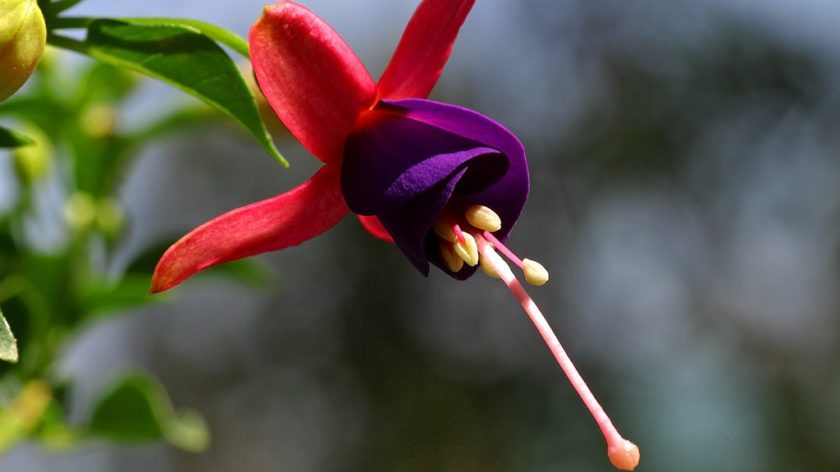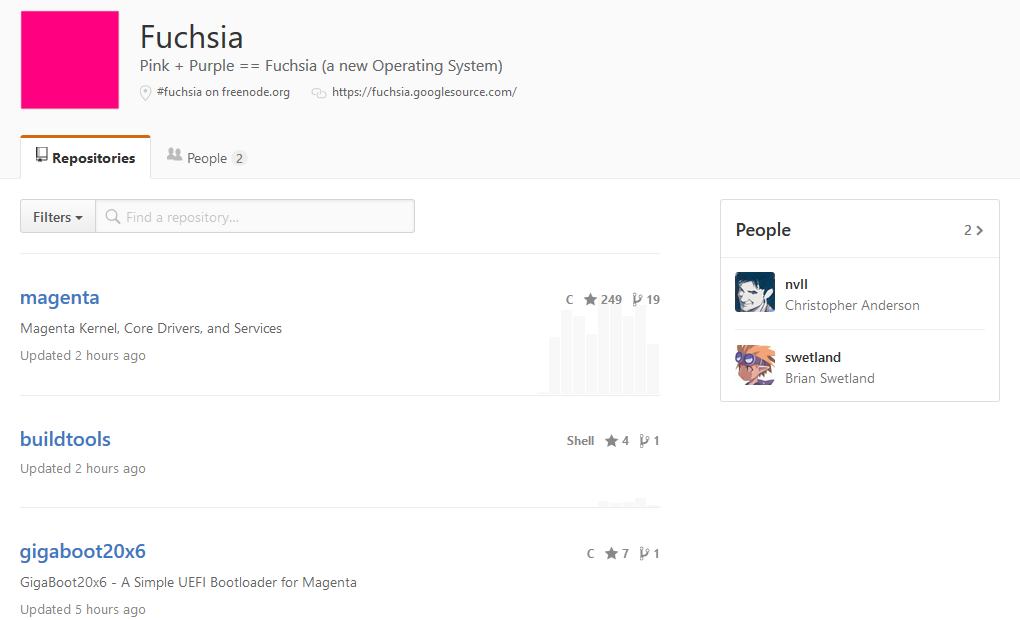Google is developing a new Fuchsia operating system, but no one knows why

Fuchsia is a small evergreen shrub of the family of bastard with beautiful flowers. This is also a new Google project.
Most operating systems and software platforms developed by Google are based on the Linux kernel. These products include Chrome OS, Android, Chromecast. In fact, Linux is the hub of the good corporation software ecosystem.
At the same time, the Linux kernel is not always the ideal base for specialized software. This is especially true for embedded devices with limited software. Several Google engineers are currently working on a new operating system designed for such devices. The source code is laid out in a new repository called Fuchsia (Fuchsia).
New commits have been appearing for several weeks, but third-party developers have noticed this repository just now. After analyzing the content, it turned out that Fuchsia is based on (L) ittle (K) ernel and Magenta. LK is a small OS designed for embedded small devices. LK core size is from 15 to 20 KB, source code is available here . This is open source software licensed under the MIT license. Magenta is used in modern phones and personal computers with an advanced configuration, equipped with gigabytes of memory and modern processors. Fuchsia, as you can understand, is a hybrid system built simultaneously on the basis of these two platforms. It supports 32-bit and 64-bit ARM-processors.
')
There are a lot of sources in the repository now. Apparently, Fuchsia supports Dart, JSON, SSL, Google GO, LLVM, Rust. There is also a special version of Fortune - a simple program that displays a pseudo-random message, first appeared in Version 7 Unix.
In Fuchsia, Flutter is used to create the user interface. The main programming language is Dart. And the top of all this is Escher, which supports a number of visual effects. Most likely, Google engineers are planning to use Material Design in their new system.

What is all this for? It's hard to say yet, but assumptions are being made that Fuchsia will work as an OS on smartphones and PCs. Perhaps Google is planning one day to replace Chrome OS and Android with its new system. On the other hand, the company can develop Fuchsia as an operating system for its smart systems like Google Home and OnHub.
Or maybe this is just an experiment of the company, and we will never see a commercial product ready for use. True, the development of the kernel and operating system is a complex task, which requires time and resources. So if the experiment is very large.
You can try out the new OS yourself . Fuchsia will soon be available on the Raspberry Pi 3 .
Source: https://habr.com/ru/post/396859/
All Articles